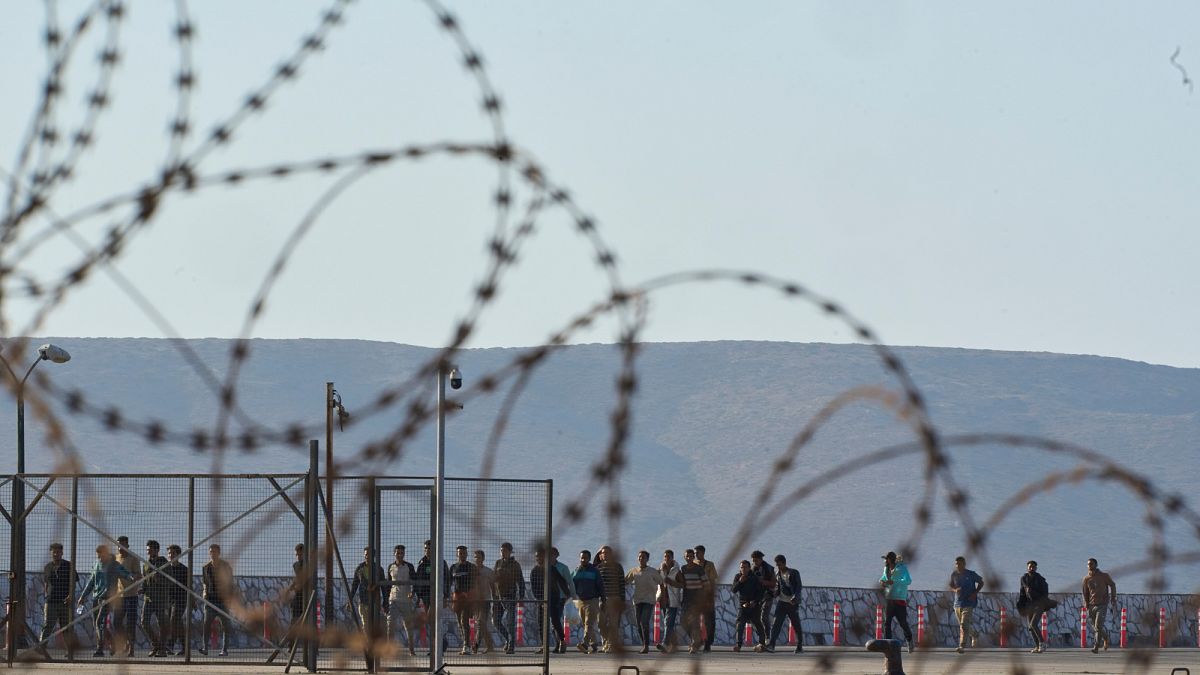Published on
More than 500 people were transferred to the port of Lavrio near Athens on Thursday after being intercepted south of the island of Crete, as Greece implements emergency measures to address a surge in Mediterranean crossings from Libya.
The migrants, consisting mostly of young men, were transferred overnight aboard a bulk carrier after their fishing trawler was intercepted by Greek authorities.
Service vessels helped bring them ashore at the mainland port. They will be sent to detention facilities near the capital.
More than 200 migrants were transferred to the port of Piraeus near Athens, in separate operations from Crete.
The transfers to the mainland were ordered because makeshift reception centres on Crete have reached capacity, with around 500 new arrivals per day on the Mediterranean island since the weekend.
Prime Minister Kyriakos Mitsotakis announced on Wednesday that Greece would suspend asylum processing for migrants arriving by sea from North Africa for three months.
The new measures are due to be voted on in parliament on Thursday as an emergency amendment.
“This is an extreme and urgent situation, and we are taking extraordinary steps, ones that are difficult, tough, and strict. But they send a clear message,” Manos Logothetis, secretary-general at the ministry of migration, told state television.
“These measures are a clear statement from the Greek government — and by extension, from Europe — that we can no longer accept migration flows from North Africa,” he said.
“People there need to think twice before deciding to pay a large sum of money to come to our country.”
Logothetis said that Greece backed EU initiatives linking financial aid to African countries to their willingness to accept their citizens who were deported or agree to voluntary repatriation from Europe.
The crisis on Crete coincided with a diplomatic spat between the European Union and Libya over migration cooperation.
Earlier this week, European officials were turned away from eastern Libya following an apparent disagreement on the appropriate authorities to involve in discussions on curbing further crossings.
Trying to reach Europe
Authorities on Crete are struggling to provide basic services, using temporary facilities to house migrants, primarily from Somalia, Sudan, Egypt and Morocco, according to island officials.
Greece remains a key entry point to the EU for individuals fleeing conflict and hardship in the Middle East, Africa, and Asia.
Arrivals surged last year, with over 60,000 migrants landing in Greece — the majority by sea — compared to around 48,000 in 2023, according to UN refugee agency data.
By mid-June 2025, Greece had recorded 16,290 arrivals, over 14,600 of which were by sea.
With Greek authorities stepping up patrols along the eastern maritime border with Turkey, traffickers appear to be increasingly choosing the longer and more dangerous route across the Mediterranean from North Africa, using larger boats capable of carrying more people.
Additional sources • AP
Read the full article here


